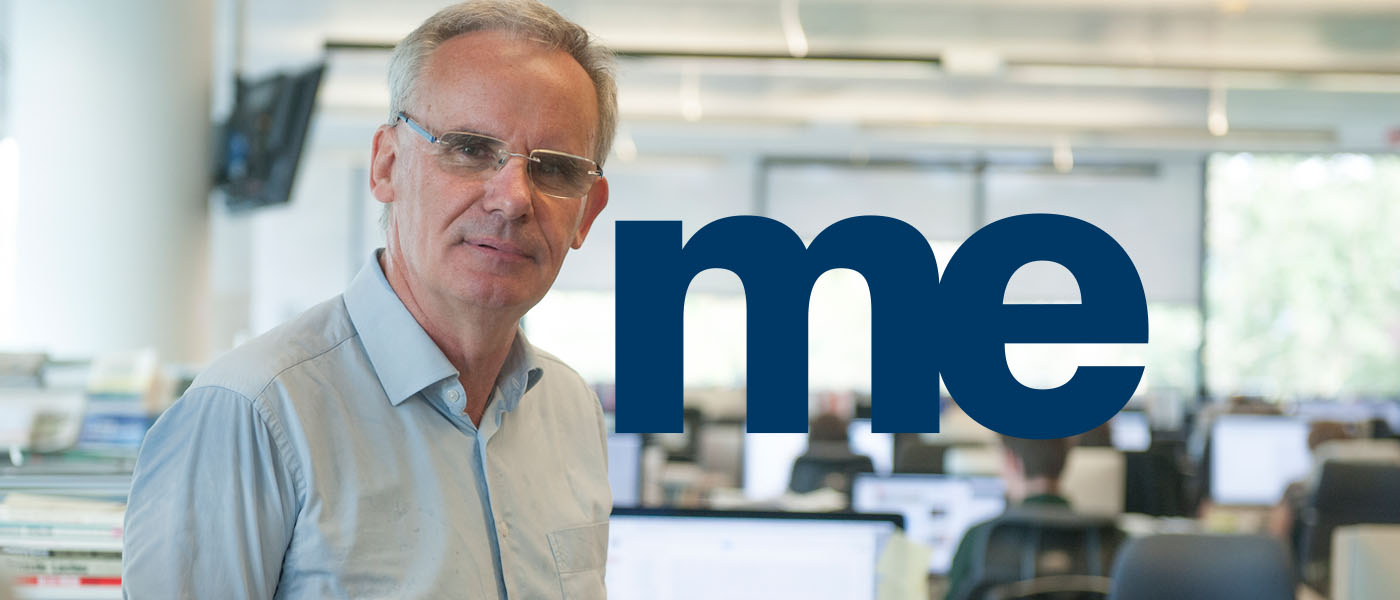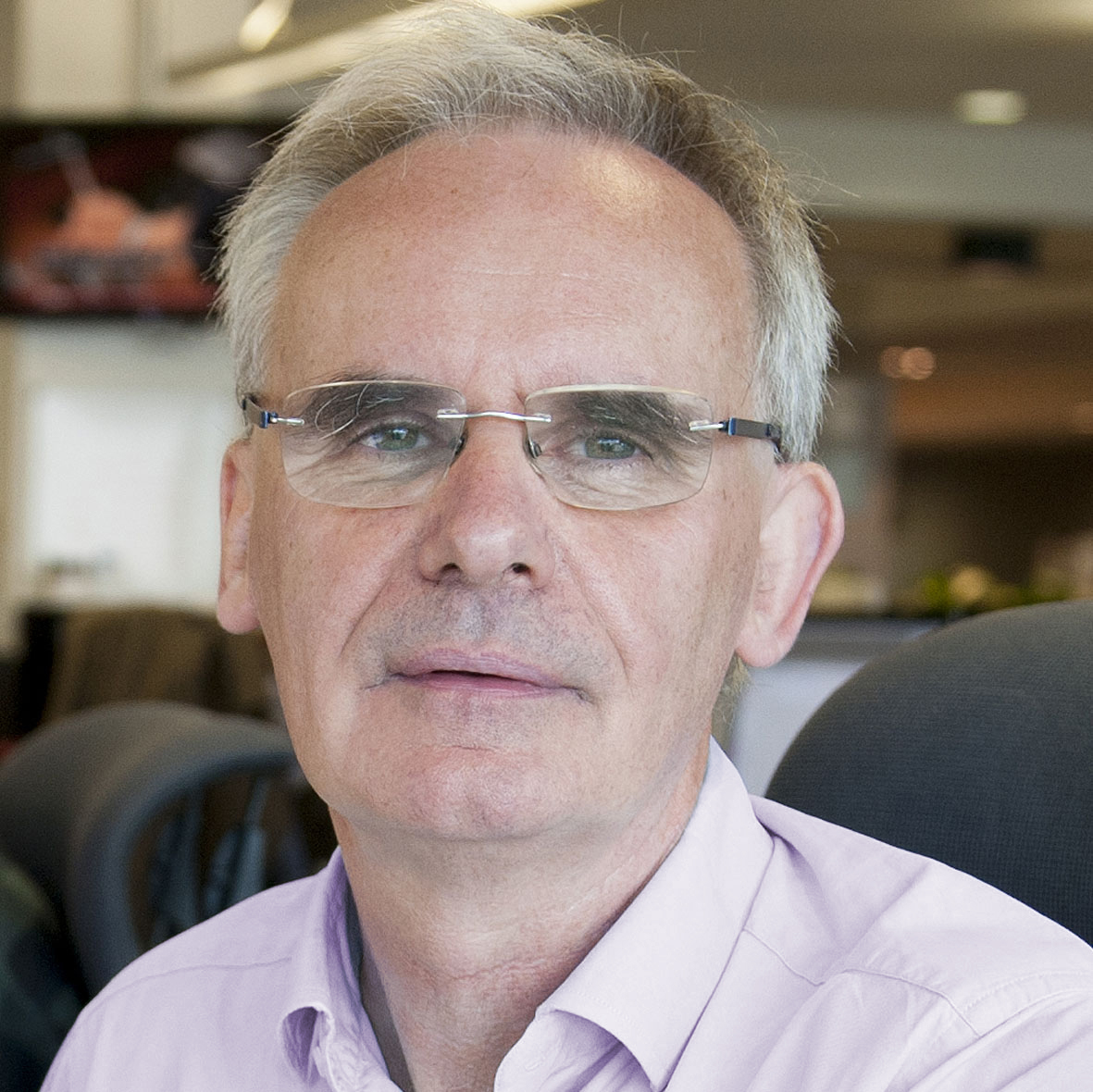
Me by Ewen MacAskill
As The Guardian’s chief political correspondent, diplomatic editor, Washington DC bureau chief and latterly defence and intelligence correspondent, Ewen MacAskill (MA 1973) fulfilled his dreams of travelling the world in pursuit of stories – “a wonderful existence”, he says. In 2013, he played a key role in bringing the revelations of US National Security Agency whistleblower Edward Snowden about mass surveillance to the eyes of the world, collecting a Pulitzer Prize and an Emmy for his work.
What's been the most memorable story of your journalistic career?
The biggest story, although I didn’t realise it at the time, was the Edward Snowden disclosures. It’s often been described as the biggest leak of intelligence in history, and the ramifications have continued to this day.
Snowden later became Rector of the University, in 2014 – did you have a hand in that?
He got in touch with me through this complex encrypted chat from Moscow, told me he had been asked to be Rector, and did I think this was something he should be involved in? I said yes, this is a really prestigious thing. It was very courageous of the students to elect Snowden, because at that time, he was seen as a pariah. Heads of intelligence in Britain and America were saying he had helped Osama bin Laden and other terrorists. Opinions now are more evenly divided, and many see him as heroic, but at that time, he wasn’t. The students at Glasgow were the first to be seen to endorse him, and that was a huge step.
How did you feel watching Tom Wilkinson play you in the film Snowden?
It doesn’t really feel like me. He calls Snowden “laddie”, for example – I’ve never called anybody “laddie” in my life. I was actually really pleased to be in a Hollywood movie, though, because you never expect that.
"The centre of my existence is my grandkids and my kids. I love climbing and hillwalking, too, so my perfect day would be surrounded by the family somewhere in the Scottish hills.
You’ve stayed in contact with Snowden. Given the US government wanted his silence, have you noticed any personal fallout from telling his story?
I was under investigation by the Metropolitan counter-terrorism squad, and it was only shelved in 2019. I was also put on a government watchlist, and every time I flew back into London, I’d be stopped at passport control and taken to the side. There was always some sort of flimsy reason – they’d say, “Your passport has been reported stolen”, or something. But that was minor. Journalists as a whole get off lightly with stories like that. It’s the whistleblowers who suffer.
You’ve been heavily involved in both UK and US politics. What would you say are the main differences in how the media interacts with politicians on both sides of the Atlantic?
The culture in the US is much more open. There’s an expectation among officials that you’re a servant of the people and have an obligation to give them information. The culture in Britain, even now, is still one of secrecy. There’s no press office for MI6, no phone number – but the CIA and the FBI have them.
You covered two Obama elections and administrations. How were they dealt with differently by the media to how Trump is being dealt with now?
In the early days, before Obama became the presidential frontrunner, you could go and see him in a church hall or a diner. You could get really close to him. Trump is unusual. Things like the White House correspondents' daily briefings with officials have almost been abandoned. But there’s a plus side to it – Trump is incredibly accessible. People shout out questions to him, and he starts answering them, when he’s about to board a plane, or whatever. So although I vehemently dislike Trump’s views, he is very voluble and accessible.
Do you feel any conflict between breaking an important news story and the burden of possible wider consequences, towards your sources or national security?
Sure. There is obviously a conflict there. At the time of the Snowden story, the US and British governments said we undermined the intelligence services and helped terrorists, but I felt that it was the first time it brought home to people the scale of mass surveillance – of invasion and intrusion into people’s data. The debate has continued and has become even more relevant with every year that passes.
How different is news reporting today, in the era of fake news, from when you started out in your career?
When I was younger, newspapers were almost like the high priests of knowledge, dispensing wisdom in the form of stories. Now it's much more democratic. Anybody can write a blog and express their opinions. Fake news and propaganda have always been there, but there are ways of countering them. My favourite was always to be as transparent as possible with my information – if you're totally transparent, it's harder to argue against.
You’re now a mentor with the Thomson Foundation, who train journalists in developing countries – what was your motivation for taking on this role?
I’ve always had an interest in journalists in the developing world. In my early career, I spent two years working with journalists in Papua New Guinea, as part of Voluntary Services Overseas. And in the ‘80s, I went to Beijing for a year and worked with Chinese journalists. The Thomson Foundation asked if I could help devise free online courses for journalists, which I’ll be doing more of this year.
Memories of Glasgow
I could hear the chimes from the University tower from where I lived, so it was a natural place for me to come. It would take me 20 minutes from getting out of bed to sitting in the lectures. I loved being at Glasgow. It was exactly the right thing for me to do.
In my first week at university, I sat listening to a history lecturer totally upend everything I'd been taught at school. It wasn’t, “These are the causes of the French Revolution”. He said history isn't like that; it's complex, sometimes subjective, and a matter for debate. I thought, “I belong here.” It was like that for the next four years, and the day I left, I thought, life is never going to be as good again. It was – but that's how I felt at the time.
The first piece I wrote for the Glasgow University Guardian, I wrote jointly with another student. It was an interview with the principal, Sir Charles Wilson, who was a decent guy. But then somebody decided to jazz it up and the front-page headline read: “A Proper Charlie?”. There was nothing in the copy to justify that – it was just student immaturity. That made me wary, though I did write a couple more pieces for them after that, just by myself.
I was in the library at nine in the morning, and I’d be among the last to leave at nine o’clock at night. I did that Monday, Tuesday, Wednesday, Thursday, and then on Thursday evening, I was down the union playing snooker. I’d work a bit on Friday, but then I’d be out Friday night, Saturday night and then start studying again on Sunday. So it was a fairly even balance. I learnt a lot arguing about politics with friends in the union bar.
Since retiring from The Guardian in 2018, Ewen has devoted more time to his family and hillwalking. However, he has continued to write for The Guardian, alongside working with the Thomson Foundation.
Ewen also wants to travel to some of the few countries he has not yet visited – among the list are Cuba, Vietnam and Cambodia. Follow Ewen on Twitter.
This article was first published March 2020.

Photos: Jill Mead/The Guardian
QUICKFIRE
Greatest challenge?
I climbed the Matterhorn when I was younger, with another Glasgow climber. We did it without guides.
Guilty pleasure?
I’ve spent a lot of money on mountaineering gear.
Happiest memory?
It was the day my first son was born. I just fell in love with him straight away.
Biggest regret?
Most of the time when I was offered assignments, I said yes – I usually opt for adventure rather than the safe option – but a couple of times I didn’t, and I regret that.
Greatest extravagance?
I was brought up a Wee Free. They don’t do extravagances. So it would be something pathetic - maybe a cake, or a bar of chocolate.

